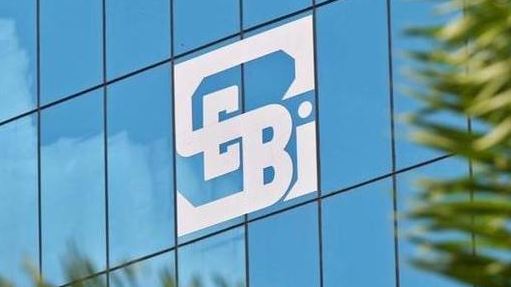New Delhi: With an aim to further safeguard investors’ interests and to take defaulters to task, capital market regulator Sebi is planning to unveil a slew of reforms, including for greater checks on credit rating agencies and for rewarding informants in insider trading cases with up to Rs 1 crore reward.
The regulator is also planning to ease its norms for ‘Muni Bonds’ to allow smart cities and other entities undertaking tasks similar to municipalities to raise funds through this route and get their securities listed on the stock exchanges.
Officials said that Sebi’s board, at a meeting scheduled on Wednesday in Mumbai, is also likely to take up issues relating to mutual funds, startup listing platform and buybacks, among other agenda items.
Amid concerns over banks citing ‘client confidentiality’ to resist sharing of information on delayed loan repayments and possible defaults by their borrowers, Sebi is planning to tighten its norms to make it mandatory for companies to provide these details to credit rating agencies.
Amid numerous cases of huge loan defaults, including in cases like IL&FS, rating agencies have also come under the scanner for failing to flag potential credit risks of the securities and entities rated by them.
However, rating agencies have often sought to shift the blame to companies and lenders by claiming that they do not get information about delay in meeting bank obligations and payment failures, which are considered early indicators of a default.
Sebi is now proposing to amend its regulations for rating agencies to ensure that any listed or unlisted entity, before getting rated, gives an explicit consent to obtain from their lenders and other entities full details about their existing and future borrowings as also their repayment and delay or default of any nature and provide the same to the rating agencies.
The move is aimed at helping rating agencies get timely information about the rated entity’s financial strength and incorporate it in their ratings.
In another major proposal, Sebi plans to propose that an informant will get up to Rs 1 crore reward, a hotline for sharing details confidentially, and a possible amnesty or settlement for minor wrongdoings in return for cooperation in the probe.
Also, any entity associated with the securities markets, including listed firms and intermediaries, would face Sebi action if it subjects any employee to direct or indirect harassment, including by way of demotion, suspension or termination, for breaching any terms and conditions of employment or confidentiality agreements.
At the same time, Sebi would also act against those submitting frivolous or vexatious information under this mechanism.
Regarding mutual funds, Sebi wants fund houses to shift all their investments to listed or to-be-listed equity and debt securities in a phased manner and reduce their exposure to unrated debt instruments from 25 per cent to only 5 per cent.
Exposure to risky debt securities has emerged as a major risk for investors, including those coming through the mutual fund space, and the regulator has been making efforts to enhance its regulatory safety net against such risks.
Also, mutual funds would be permitted to accept upfront fees with disclosure of all such fees to valuation agencies and standard methodology for treatment of such fees would be issued by the Association of Mutual Funds in India in consultation with Sebi.
Another key proposal aims to help startups move from the Innovators Growth Platform of stock exchanges to the main board for regular trading after one year of trading and on expanding their shareholder base to at least 200.
Besides other conditions, the company or any of its promoters and directors should not have been barred from the capital market. They should also not have been classified as wilful defaulters or fugitive economic offenders. Also, none of the promoters or directors should be associated with a company barred from the capital market.
Sebi has also lined up relaxed norms for ‘Muni Bonds’ to help smart cities and other registered entities working in areas of city planning and urban development work, like municipalities, raise funds through issuance and listing of their debt securities.
The Securities and Exchange Board of India (Sebi) had issued its Issue and Listing of Debt Securities by Municipalites (ILDM) Regulations nearly five years ago and since then seven municipalities have raised nearly Rs 1,400 crore by issuing their debt securities, which are commonly known as ‘Muni Bonds’.
Officials said that the regulator is now proposing to allow this route for a larger number of entities, including special purpose vehicles set up under the central government’s ambitious ‘Smart Cities Mission’.
Sebi is also planning to ease its norms for buyback of shares by listed companies having subsidiaries in housing finance and non-banking financial companies’ sectors.
A buyback is permitted if the ratio of the aggregate of secured and unsecured debts after the buyback is not more than twice the paid-up capital and free reserves, except for those permitted under the Companies Act.
If the debt-equity ratio on standalone basis does not exceed 2:1, but exceeds this threshold on consolidated basis, Sebi plans to allow a buyback if the consolidated ratio is up to 2:1 after excluding the subsidiaries that are NBFCs and housing finance companies regulated by RBI or National Housing Bank.
But, the standalone debt-equity ratio of all such excluded subsidiaries should not exceed 5:1.





